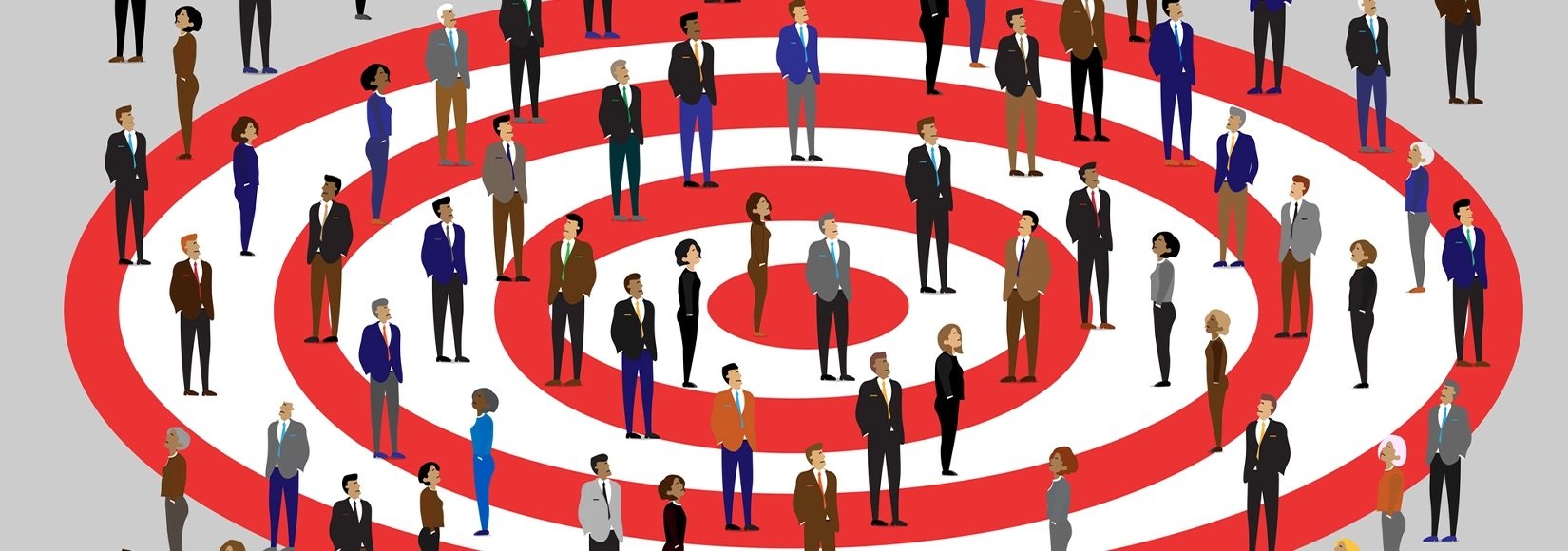Gen Z has entered the advertising chat (and the C-suite). Are you ready for the next decade of leadership?
Written by Tatum Hennessy
The Ad Industry is constantly shifting as trends, innovations, and mergers shake up the industry landscape. However, the most recent disruptor is Gen-Z, the next wave of advertising leaders who are already restructuring the industry in a big way. Let’s explore how students, professionals, and practitioners alike can anticipate and embrace the coming changes in the Ad industry as Gen-Z takes the reins in this constantly evolving category.
Image courtesy: BBC
Tech Takeover: Early Bird Gets the… Microchip?
If you’re feeling overwhelmed and fatigued with the phrase “AI Revolution” being thrown around, know that you aren’t alone. Adtech is expanding more rapidly than ever, thanks to the speed with which AI is able to adapt, learn, and evolve. The sentiment surrounding AI and its various strengths and weaknesses is mixed, but it’s crucial to recognize what’s already happening: a rapid shift is in progress, and savvy advertisers are stepping up to the plate.
In the next decade, tech and AI tools will become increasingly available to advertisers, but it will likely take a few tries for brands to hit their AI stride. We’ve already seen some artificially generated campaigns reach the public, and not all of them were well received. Where Nike successfully struck a balance between creativity and innovation in their “Never Done Evolving” campaign with Serena Wiliams, Coke was met with an uproar of negative press over their Ai holiday campaign that upset viewers and came across as disingenuous.
Evidently, there’s still a ways to go when it comes to finding out which applications of Ai stick, but there’s no denying that tech will become inextricably linked with every aspect of agency life. From data driven strategy, to campaign planning, to media budgeting, the emergence of new tech tools and automation will be integrated across departments, and nobody is better prepared to drive that initiative than Gen-Z themselves, some of Ai’s earliest adopters. Given their impending rise throughout the ad ranks, Gen-Z is uniquely positioned to mature at the same rate as generative Ai in the agency landscape, giving them a say in how it’s integrated into the industry and where and why it’s used.
Ultimately, advertising is a uniquely creative discipline that revolves around the human perspective, not that of the robot, so don’t be afraid to embrace the use of Ai. In the next decade, it’s safe to say that Adtech will continue to become a more robust category under the direction and close ethical watch of this generation's newest ad leaders.
Image courtesy: AdAge
Breaking from Tradition and the Cubicle
Gen Z can’t escape workplace lingo like “interdepartmental” and “cross-functional,” and they’re already putting these terms into action, redefining the office in a big way. Ad agency structure has already begun evolving, and it’s become clear that the highly insular structure of “traditional” agencies may soon be a thing of the past.
In the next decade, Gen Z will redefine the business model by reorganizing the agency departments that have long defined the workplace hierarchy. Gen-z’s rise to the top is prompting departments to merge, promoting a more communal workplace culture and interdisciplinary company vision. Modernizing the perception and execution of the traditional “desk job” is key for Gen-Z-ers with shortened attention spans and a penchant for improved workplace culture. Tearing down and redefining the boundaries between agency disciplines is the first step in creating a more communal and inclusive work model.
In the next decade, we can anticipate the gradual shifts that revamp the nomenclature of traditional departments like “strategy”; we’ll have to get comfortable with expanded categories that combine disciplines like “analytics and planning”. There’s plenty of room for collaboration, innovation, and out-of-the-box thinking in new arenas like these, and it will usher in a decade of newer, more creative advertising that harnesses the power of specialized skill sets outside of what agencies have traditionally offered.
Image courtesy: HGS
Ads with a Side of Personal Data
You think your IQ is impressive? Wait until you see what the next wave of ads are bringing to the intelligence table. The explosion of Adtech and Martech has heralded an era of incredibly “smart” campaigns that harness your personal data to construct messages that are fine-tuned to your preferences. Advertising is no longer built around what a consumer might like; campaign decisions are directly driven by increasingly specific and targeted customer data that reflects what consumers are proven to like- resulting in advertisements designed specifically for you.
For consumers, everyday life is becoming more personalized and automated than ever. Your data is everywhere. Over the next decade, it will grow bigger, be more valuable to marketers, and be more precise. Ads are already locking onto your habits and lifestyle, shaping what you see and buy. Chances are, you’ve already been targeted—whether you noticed or not.
Picture this. You and your friends are discussing how badly you're craving a bagel. Next thing you know, a bagel ad appears in your Instagram feed. Sound familiar? It isn’t magic or malicious, it’s just big data making your ads highly personalized because it knows when and under what circumstances you typically order bagels. If that sounds a little unsettling, don’t worry- you have control over when and where your data is shared. And over the next decade, that data won’t just be tracked. Instead, it’ll be working for you, making life smoother, smarter, and more seamless than you ever imagined.
Gen Z are digital natives, and no group is more comfortable with the benefits of custom features and targeted advertising. As Gen Z leaders climb the ranks, data-driven customization will continue to push boundaries into the next decade.
Image courtesy: Think Consulting
It’s Time to Get Married Merge Our Assets
Nobody likes third wheeling, including smaller independent agencies. In recent years, the industry's biggest players have been tying the knot and merging into mega conglomerates, leaving out the little guys. Mega-mergers are taking over the media landscape, and they come with their fair share of implications for consumers and smaller agencies alike.
Marriages between massive holding companies are pushing the advertising industry through a massive restructuring, resulting in many campaign materials coming out of the same parent companies. The proliferation of campaigns from similar sources is actively redefining what it means to be truly creative and original, and it’s up to gen-Z to ensure that unique voices continue to shine through in this oversaturated and redundant market. Before you know it, mergers will be everywhere, but the terminology surrounding them will gradually evolve.
Instead of term “mergers” you’ll likely hear these shifts referred to as “integration” and “optimization” initiatives to detract attention from the fact that many smaller independent agencies are being absorbed (and sometimes squashed). Consumers and advertisers alike will have to adapt to the shifting landscape surrounding this expanding trend, and Gen Z will have to learn to navigate a world where fewer companies hold power and fresh perspectives may get stifled under all the noise. For the new wave of advertising leaders, this means less creative freedom and more homogenized ideas across the board. On the client relations side, there will be fewer options for clients to choose from and increased conflict over ideas that are more ordinary than extraordinary. Not everything is a numbers game, and when it comes down to issues of campaign resonance and meaning, it’s up to the next wave of Ad leadership to ensure that the uniquely human elements of this industry stay in-tact. Can our voices shine through? Will Gen-Z survive to tell the tale? Only time can tell. The only thing we know for certain is that we’re ready for it.
Agencies are ushering in the next generation of advertising leadership. From the integration of AI to shifting workplace structure, advertising is in need of drivers of change that can adapt to the rapidly evolving industry landscape. Gen-Z’s fresh perspectives, specialized skill sets, and unwavering creativity distinguish them as leaders in agency life, and their next destination is the C-suite.




